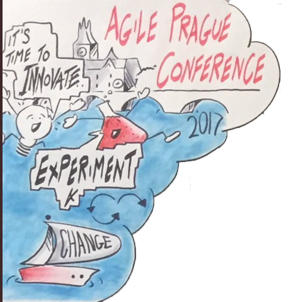Agile Prague 2025
The next year of Agile Prague Conference is going to be Sep 15-16, 2025.

Join the Certified Designing Agile Organizations Workshop with Jurgen De Smet
Join a two-day Certified Designing Agile Organizations workshop on Sep 17-18 as a combo with the conference (Sep 15-16). The capacity is limited!
read more »Join the ICAgile Professional Agile Coaching Certification Workshop with John Barratt
Join a two-day ICAgile Professional Agile Coaching Certification workshop on Sep 17-18 as a combo with the conference (Sep 15-16). The capacity is limited!
read more »Open Space
Wouldn’t it be great to go to a conference that included all of the topics that are most interesting to you? A conference that addressed your most pressing questions?
That’s what the Open Space sessions are for. It’s the part of the conference that you get to design.
Join the lunch Open Space and deepen your learning experience.
read more »
Marcus Ahnve - Taylorism And Mass Production - Why The Software Factory Fails

Marcus Ahnve /Sweden/ is a Senior Consultant at Valtech, a global IT consultancy. He is a agile coach and developer helping software development organizations.
Marcus experience in agile software development dates back to 1996 and his first project which was done in Smalltalk. In 2001 he started doing XP development and has since then explored new ways of making development more effective, economical and fun. Marcus is one of the founders of the community conference on agile methods Agila Sverige held yearly in Stockholm.
![]() mahnve
mahnve
![]() http://www.linkedin.com/in/mahnve
http://www.linkedin.com/in/mahnve
Taylorism And Mass Production - Why The Software Factory Fails
* Why do we separate development from maintenance and operations?
* Why do system architects chose frameworks and write UML diagrams but do not write any code?
* Why do we measure how many lines of code a developer writes?
The theories of Frederick Taylor and those that followed them still today sets the norm for how organizations are managed. What we see as normal and common ways to organize work have their historical roots in early 1900's steel mills.
These practices make agile adoption difficult, hinders empirical processes and self organizing teams.
The talk provides an explanation to why IT-organizations are managed like factories, why these fail, and how to start the change into a succesful agile organization.


















